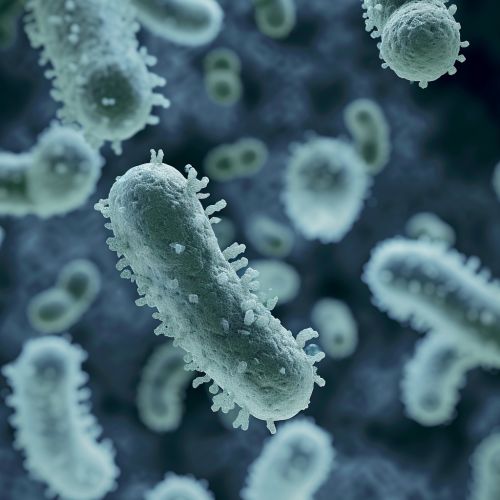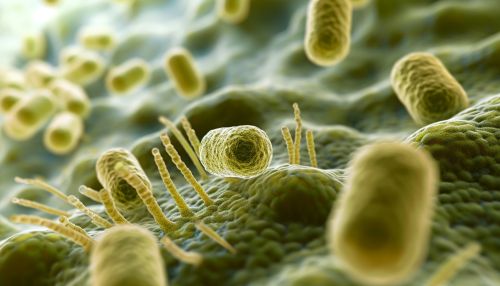Bacteroides
Overview
Bacteroides are a group of Gram-negative bacteria that are commonly found in the human gut. They are a significant component of the microbiota and play a crucial role in maintaining health by breaking down complex molecules such as polysaccharides. Bacteroides species are anaerobic, non-spore-forming, and rod-shaped bacteria.


Classification and Characteristics
Bacteroides belong to the phylum Bacteroidetes, which also includes other important genera such as Prevotella and Porphyromonas. The genus Bacteroides is further divided into several species, including Bacteroides fragilis, Bacteroides thetaiotaomicron, and Bacteroides vulgatus, among others.
Bacteroides are obligate anaerobes, meaning they thrive in environments devoid of oxygen. They are non-motile and do not form spores. The cell wall of Bacteroides is composed of lipopolysaccharides, which are unique in structure and composition compared to those of other Gram-negative bacteria.
Role in the Human Microbiota
Bacteroides are one of the most abundant genera in the human gut microbiota, particularly in the colon. They play a crucial role in the breakdown and fermentation of complex carbohydrates, producing short-chain fatty acids (SCFAs) such as acetate, propionate, and butyrate. These SCFAs are a major energy source for the colonic epithelial cells and also have anti-inflammatory properties.
In addition to their role in digestion, Bacteroides also contribute to the development and maintenance of the immune system. They interact with the gut-associated lymphoid tissue (GALT) and help in the maturation of immune cells.
Pathogenicity and Resistance
While Bacteroides are generally beneficial, they can also become pathogenic under certain conditions. Bacteroides fragilis, in particular, is known to cause intra-abdominal infections and bacteremia. The pathogenicity of Bacteroides is linked to their ability to form biofilms, produce toxins, and evade the host immune response.
Bacteroides species are also known for their high level of resistance to antibiotics, including beta-lactams and metronidazole. This resistance is primarily due to the production of beta-lactamases and efflux pumps, as well as modifications in the target sites of antibiotics.
Research and Future Directions
Research on Bacteroides has provided valuable insights into the complex interactions between the gut microbiota and the host. The use of gnotobiotic mice colonized with Bacteroides has been particularly useful in studying these interactions.
Future research on Bacteroides is likely to focus on their role in health and disease, particularly in relation to the gut-brain axis, obesity, and inflammatory bowel disease. The development of new strategies to modulate the gut microbiota, such as the use of prebiotics, probiotics, and fecal microbiota transplantation, is also a promising area of research.
